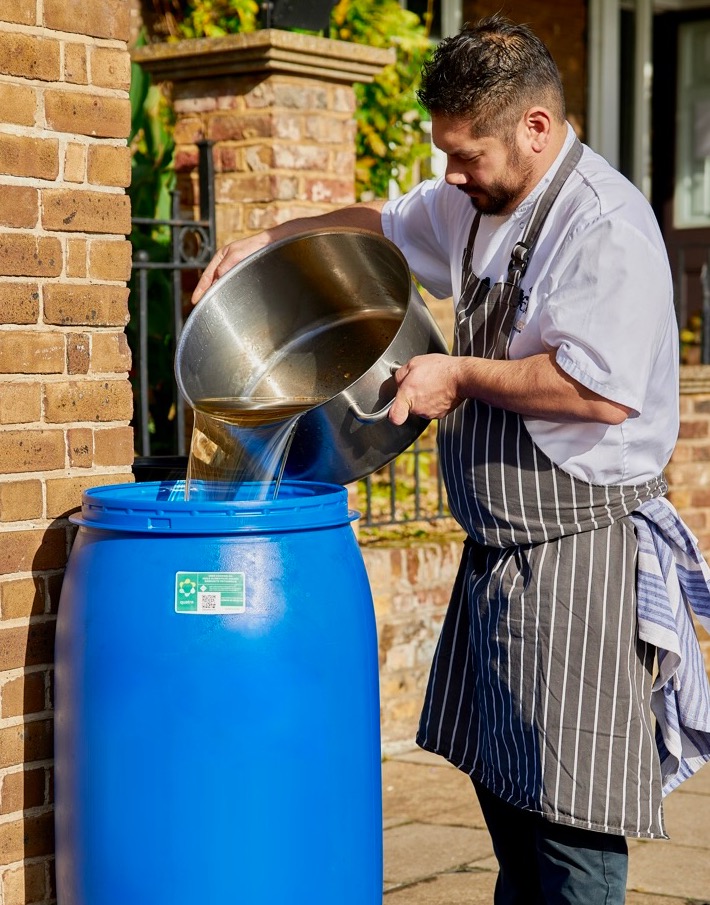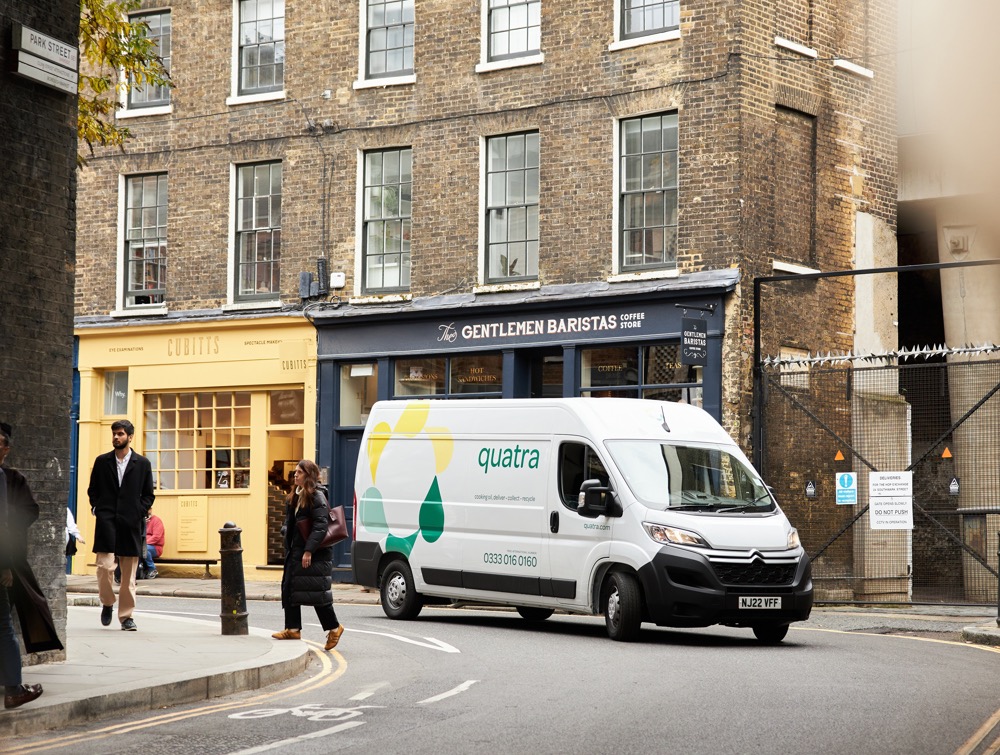Disposing of used cooking oil doesn’t have to be a hassle. Whether you’re running a restaurant or cooking at home, proper disposal keeps your pipes clear, helps the environment and ensures you’re following regulations. If you're a business, it gets even better — you can get paid for your waste oil! Proper disposal is easy, sustainable, and even profitable. Here’s everything you need to know:
Cooking Oil Disposal for Businesses
For restaurants, catering services, and other hospitality businesses in the UK, proper disposal of used cooking oil is not just good practice — it’s a legal requirement. The Food Standards Agency (FSA) mandates that all used oil must be stored securely and collected by a licensed waste carrier (LWC). Improper disposal, such as pouring oil down the drain, can result in hefty fines and environmental damage.
A. Steps for Proper Cooking Oil Disposal
1. Storage and handling
Proper storage of used cooking oils is essential to prevent spills, which may attract pests. But first let used cooking oil cool before handling to ensure safe transfer. Pour the cooled oil into a secure, leak-proof container with a tight-fitting lid to avoid spills or leaks.
- Blue barrels: Perfect for businesses with lower volumes of waste oil.
- Large storage tanks: Designed for kitchens handling higher oil volumes.
Explore Quatra's UCO storage options here.

2. Partner with a Registered Waste Carrier (RWC)
In the UK, hospitality businesses are required to partner with an RWC to dispose of used cooking oil responsibly. Regular collections help keep your business compliant while ensuring smooth operations.
If you’re looking for a reliable cooking oil collection partner or feel unsatisfied with your current supplier, Quatra makes it easy! Our simple 4-step process ensures efficient collection of your used cooking oils and fats, providing hassle-free, professional service you can trust.
1. Contact
us
Reach out via phone, email, or website chat to set up your collection plan.
2. Schedule
a collection
We’ll tailor pickup times to suit your needs.
3. Need fresh
cooking oil?
We can supply fresh cooking oil alongside your used oil collection.
4. Documentation after each collection
After each collection, you'll get an email with a receipt, oil quantity, and fee for easy record-keeping.
B. Why recycle your used cooking oil?
1. You get paid for your used cooking oil
Did you know that you could earn money from your used cooking oil? Quatra offers a free collection services and guarantees the best price for your waste oil, making recycling both easy and rewarding for your business.
2. You support renewable energy
Used cooking oil is a valuable resource in the production of biodiesel and Sustainable Aviation Fuel (SAF). By recycling your waste oil, you’re contributing to the creation of cleaner, renewable energy sources that power vehicles and even planes. These fuels reduce reliance on fossil fuels and help lower carbon emissions, driving sustainability forward.
Cooking Oil Disposal for Households
Proper disposal of used cooking oil at home is equally important to avoid plumbing issues and minimize environmental harm. Here’s how you can make a difference:
- Reuse when possible: If the oil is in good condition, strain it through a coffee filter to remove food particles, then store it in a clean jar for reuse. Limit reuse to 2-3 times.
- Dispose of small amounts: For small amounts of oil, soak it up with kitchen roll, bread, or food scraps, then place it in your general waste bin.
- Recycling centres: Check with your local council for recycling programs that accept used cooking oil.
Critical Mistakes to Avoid
1. Never pour oil down the sink
As it cools, the oil hardens, causing stubborn blockages and costly repairs. Hot water might seem like an easy fix, but it simply pushes the problem further along the pipes, where the oil solidifies and causes even bigger issues. This can result in fatbergs — huge clogs that disrupt the UK's sewage systems.
2. Avoid throwing oil directly in the bin:
Throwing oil in the bin can lead to leaks, attract pests, and create unpleasant smells. It’s also against the rules for businesses, and improper disposal could mean hefty fines.
Why Choose Quatra?
For reliable and eco-friendly used cooking oil disposal across the UK, Quatra offers unmatched benefits, serving businesses from London to Glasgow:
- Free & clean collection
- Collection within 48 hours
- We offer the best price
- Nationwide coverage
